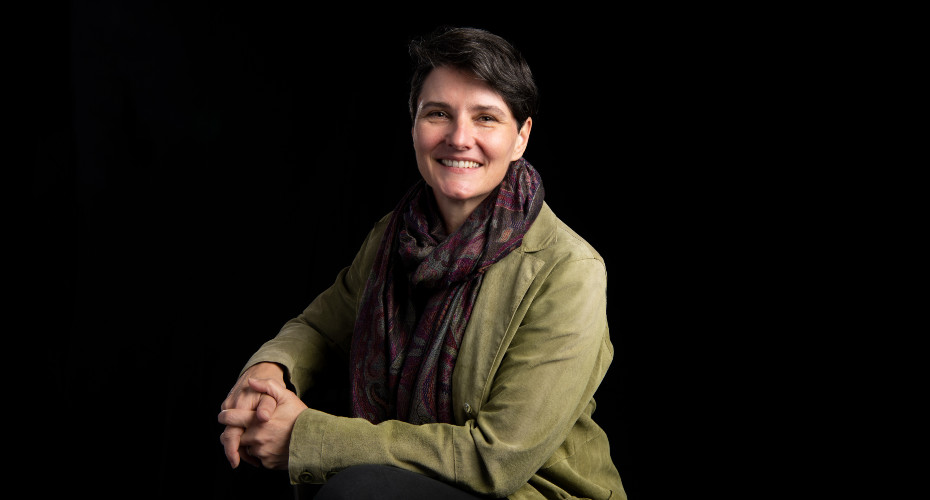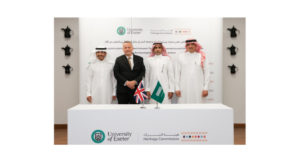MBE for University of Exeter expert who led major UK-wide research into the impact of the pandemic

A University of Exeter academic who led a major UK-wide research project to mitigate the impact of coronavirus on society, law, health, and culture has been awarded an MBE in the King’s Birthday Honours.
Professor Pascale Aebischer became involved in Pandemic and Beyond following her long career as an expert in Shakespeare and performance, as well as digital innovations in theatre. During the pandemic she carried out her own research on how regional theatres coped with being closed to audiences.
Pandemic and Beyond, funded by the Arts and Humanities Research Council, involved 77 teams from UK universities who worked on projects focused on communicating public health messages, knotty ethical problems that arose from decision-making during the pandemic, the links between the arts and physical and mental health, and the impact of the pandemic on the creative industries. It showcased the skills of humanities researchers in addressing the crisis, and the importance of the arts and culture in understanding what happened during the spread of the coronavirus and its legacy.
Over two years, the Pandemic and Beyond team created a virtual hub that allows researchers to connect with decision-makers to ensure their expertise and resources are shared, and that decisions about how best to tackle the pandemic and its aftermath are informed by relevant research.
Professor Aebischer’s research is helping the theatre industry to prepare for and carry out digital transformation. During the pandemic she worked with Creation Theatre (Oxford) and Equity UK to develop recommendations for how actors and technical staff should work during digital productions.
Professor Aebischer grew up and studied in Switzerland. She moved to the UK when she was awarded a Berrow Scholarship to study for a DPhil at Lincoln College, Oxford. She then worked as a Research Fellow at the University of Cambridge and a Lecturer at the University of Leicester, before moving to the University of Exeter in 2004.
Professor Aebischer has written books on performing Shakespeare, Jacobean drama, film adaptations of early modern plays, performance technologies and about how Shakespeare went ‘viral’ during the COVID-19 pandemic. With an international team, she is now working on a new project which examines how the responses to COVID-19 in G7 countries have impacted on the live performing arts.
Professor Aebischer said: “I’m thrilled about this recognition of the fantastic work done by the Pandemic and Beyond team at the University of Exeter, including academics and colleagues from professional services and press office departments. It was a privilege to lead so many arts and humanities research teams across the UK who worked tirelessly throughout the pandemic to address COVID-19 as a human emergency with huge impacts on society, the economy, and wellbeing. I’m enormously proud of what we’ve achieved together, grateful to have been able to contribute at a time of crisis and want to thank everyone involved for doing work that often remains invisible even as it changes lives.”
Professor Lisa Roberts, Vice-Chancellor and Chief Executive of the University of Exeter, said: “We are so proud of Professor Aebischer for being recognised with this prestigious honour. The important research she has led in recent years has reminded us all how crucial the arts and humanities are at times of crisis, and in shaping resilient societies and economies.”



